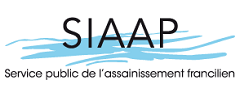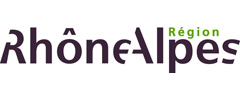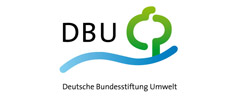Women call for equitable Green Economy agenda for Rio+20
WECF executive director Sascha Gabizon presented the women's major group position for an equitable Green Economy agenda for Rio+20 during the preparatory meeting on the 2012 United Nations Conference on Sustainable Development (Rio+20), focussing on the needs to create decent and safe jobs also for women.
15.06.2010 |Sascha Gabizon
The full statement can be downloaded from the UN website: http://www.un.org/esa/dsd/rio20/resources/pdfs/statements_18may/green_economy/women.pdf
SESSION 2:
A green economy in the context of sustainable development & poverty eradication
Thank you Mr co-chair. I speak on behalf of the women major group.
Many of women organisations are working on sustainable development locally, are helping to create green and equitable local economic value chains, which help poverty eradication.
For example, my network of over 100 women environmental NGOs has created access to safe drinking water and sanitation for 35.000 people from low-income communities in Central Asia. We have developed low cost solar water heaters, together with local NGOs, and universities, and social responsible renewable energy companies. We did this because the available, imported, technologies were too expensive for low-income households. And some of the basic materials, like copper wire, were far too expensive, and we needed to find alternative materials. We have tried to adapt these new technologies to existing skills of women, for example, women are good at weaving baskets, so we have used this skill to make domestic biogas plants, in India.
It is not the large nuclear or coal-fired powerplant which creates local jobs for women and the poor, - it will create job for o.a. European engineers - but these local jobs are created in local renewable energy, food production, water supply. Often, it is the ecoystems of the commons which support local job creation. It is the organic food producers which produce jobs and food security, whilst protecting water srouces and biodiversity, not the GMOs which bring profit to a handful of large companies.
We see the barriers to upscaling these good GE examples. The global funding programmes such as CDM or GEF are hardly accessible for local community or womenís organisations. There is one first CDM accredited energy efficient stove project for women in North Nigeria, which took more then 2 years to get funded. By chanelling funds directly through and to civil society networks we can be more effective and share lessons fast.
The green economy, must be a value-based economy, which gives its true value to global commons, and the true value inherent in every person. We need to finance this through a trust fund, stewarded by and for the benefit of all people, where the polluter and the speculators pays, through, for example, the Financial Transaction Tax. A decision on such a financial mechanism for the Green Economy could be decided on in Rio2012. We need the IFIs to be fully involved in Rio2012.
Furthermore, it remains incredible that womenís labour remains mostly unpaid. This trusfund should finance also a basic income for all, empowering women, children and vulnerable groups, and moving them out of poverty.
Through a lack of application of the precautionary principle, we see that many women suffer from toxic chemicals in their environment, for example low radioactivity from uranium mining tailing, and persistent organic pollutants, from old pesticides, or from electronic-waste. Cleaning up this toxic and radioactive waste is often very expensive. The companies responsible often no longer exist. There is currently no financial mechanisms to address this, and most developing countries will not be able to clean up, unless we create a global system. This is an other area to be funded from a trust fund, accessible to local peoples.
Finally, we need to assure corporate accountability internationally, to create a fair playing field, for example through a Corporate Accountability protocol as part of one of the existing conventions.
Related News
Meet the Winners of the Gender Just Climate Solutions Award at COP24
On the 70th anniversary of the Universal Declaration of Human Rights, we awarded Gender Just Climate Solutions Winners at the climate negotiations in Katowice, Poland
11.12.2018
Invitation: Gender Just Climate Solutions Award 2018
10 December, COP24 Katowice
04.12.2018
Getting to the Future We Want
4-7 November, Brussels: European Environmental Bureauís (EEB) Annual Conference
12.11.2018
GoodFood4All
WECF and partners all over Europe start GoodFood4All Campaign
06.11.2018
#Ruralwomen: join our Women2030 campaign!
15.10.2018






































